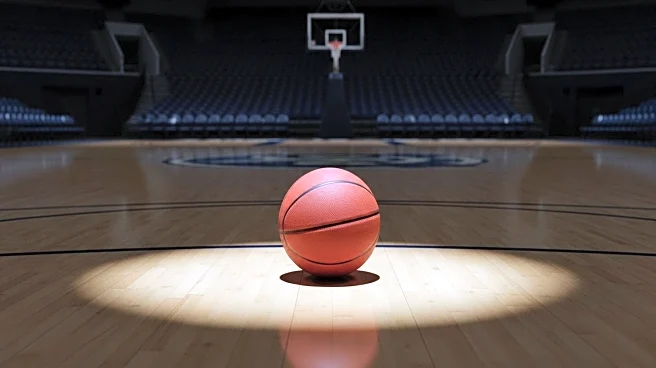What is the story about?
What's Happening?
George Raveling, a trailblazing figure in basketball and former USC coach, has died at the age of 88 after battling cancer. Raveling was known for his significant contributions to the sport, both as a coach and as an executive. He was the first Black coach to lead the USC basketball program and played a pivotal role in signing Michael Jordan to his landmark endorsement deal with Nike. Raveling's career spanned several decades, during which he coached at various institutions, including Washington State and Iowa, before joining USC in 1986. Despite a challenging start, he led the Trojans to multiple NCAA tournaments. After retiring due to a car accident in 1994, Raveling continued to influence the sport through his work at Nike, where he became the director of international basketball.
Why It's Important?
George Raveling's legacy extends beyond his coaching achievements, impacting the broader landscape of basketball and sports marketing. His role in securing Michael Jordan's endorsement deal with Nike revolutionized sports branding and athlete endorsements, setting a precedent for future partnerships. Raveling's career also highlights the challenges and triumphs of Black coaches in collegiate sports, paving the way for greater diversity and inclusion within the industry. His mentorship and advocacy for players from underprivileged backgrounds underscore the importance of holistic development in sports, emphasizing life skills alongside athletic prowess.
What's Next?
In the wake of Raveling's passing, tributes from the basketball community and beyond are expected to continue, celebrating his contributions to the sport and his impact on those he mentored. His legacy may inspire ongoing discussions about diversity in coaching and the role of sports in social change. Institutions like USC and Nike may honor his memory through commemorative events or initiatives that reflect his values and contributions.
Beyond the Headlines
Raveling's life story, marked by personal challenges and professional triumphs, offers a profound narrative on resilience and the transformative power of sports. His proximity to historical events, such as standing near Martin Luther King Jr. during the 'I Have A Dream' speech, adds a unique dimension to his legacy, intertwining sports with broader cultural and social movements. His decision to donate King's speech to Villanova reflects his commitment to preserving history and inspiring future generations.
















